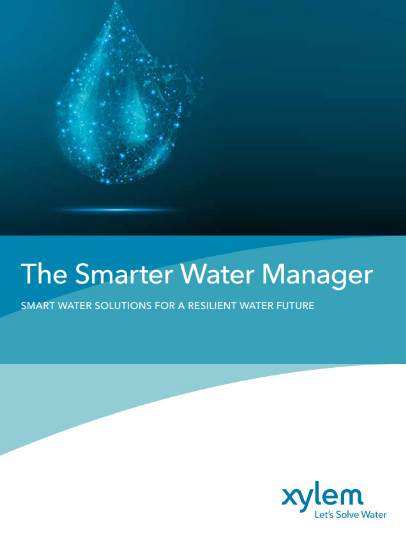How Utilities Can Increase the Efficiency and Reliability of Operations with Smart Water Solutions
Published on by Water Network Research, Official research team of The Water Network in Case Studies
‘The Smarter Water Manager’ shares best practices from utilities in London, Milan and Singapore.
The water industry is on the cusp of a significant transformation, driven by an urgent need to tackle complex challenges including water scarcity, aging or overly stressed infrastructure and the impact of extreme weather events. Amid growing pressure to do more with less, utilities are expected to invest $14 billion in smart water technologies through 2024 as water managers continue to seize the opportunity to reduce energy consumption and mitigate unnecessary water losses and optimize advanced asset management2.

As part of its efforts to accelerate the water sector’s migration to smart infrastructure, global water technology company, Xylem (NYSE: XYL) has published a white paper to guide and educate water managers in the transition to smarter water technologies. Entitled The Smarter Water Manager - Smart Water Solutions for a Resilient Water Future , the white paper outlines the current state of the smart water industry in Europe and the future of smart water technologies and applications. The publication also provides detail of Xylem’s end-to-end smart water platform. Case studies from London, Milan, the Netherlands and Singapore illustrate how smart water solutions - even the gradual adoption of these solutions - can dramatically improve the productivity of operations and help utilities address the issue of water affordability.
Patrick Decker, President and CEO of Xylem, explained, “From rising non-revenue water rates and energy costs to the increasing issue of affordability of maintaining and expanding water infrastructure to the prevalence of emerging contaminants, the challenges facing water managers are significant and mounting. Smart water solutions using smarter equipment and data analytics hold the potential to address these challenges and fundamentally shift the economics of water management.
“We look forward to partnering with our utility customers as we strengthen our collective ability to achieve smarter, sustainable water management. Unlocking these data-driven solutions on a macro scale will enable water and wastewater managers to better meet the needs of their growing customer base.”
There are many value levers from smart solutions, including:
Safety: Increased safety and control throughout water and wastewater operations.
Operational cost: Reducing the energy and maintenance cost in the distribution network.
Resilience: Identify, predict and prevent failures and downtime in critical equipment.
Flexibility: Increased flexibility to handle different situations (e.g. volumes, parameters) with existing infrastructure.
Source: Xylem
Media
Taxonomy
- Technology
- Infrastructure Design Software
- Water Utility
- Infrastructure
- Integrated Infrastructure
- Utility Management
- Infrastructure Management
- Smart Infrastructure Development
- green infrastructure